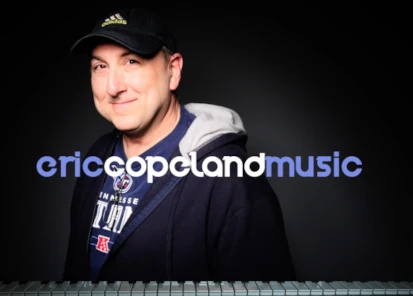The paid use of pre-recorded music in T.V., Movies, Commercials, etc., is called sync licensing. It can be very profitable for a musician to have their music used in some type of production. In some cases it can also greatly raise the public’s awareness of the artist and their music. Both of these reasons are why I have been trying to learn more about sync licensing possibilities for my music.
I was seeking this type of information when I came across the Make Music income Podcast. This is a weekly podcast hosted by Eric Copeland. The podcast concerns lots of ways of making money as a musician, but focuses heavily on the sync licensing business. Eric spent over 20 years as a music producer in Nashville, TN and Orlando, FL. He still does a lot of producing, but he’s also spent the last several years pursuing licensing opportunities for the music he composes.
He’s had considerable success in the stock music area of the business. He’s placed his music in various music libraries. Video producers then find his music in these libraries and use Eric’s music in their productions in exchange for a licensing fee. The great thing about these stock music libraries is that the music is non-exclusive. This means Eric has been able to license the same pieces of music repeatedly to numerous video producers and in numerous video productions. He has created 2 resources to teach other musicians to do exactly what he’s been able to achieve. “The Stock Market” Course shows you how to submit your music to libraries. “The Stock Market” ebook, is a comprehensive look at 30 stock music libraries, his experiences with them and in-depth advice on each.
Eric has also placed a lot of music and had success with exclusive music libraries. Exclusive music libraries are libraries that generally deal with bigger projects such as movies, TV, etc.. Exclusive means that you can’t submit those tracks to other libraries. The advantage to the composer is that the licensing fees for exclusive music are generally much higher than they are for stock music. Eric’s “Getting In Sync’ eBook tells his sync licensing story in great detail. He talks about making contacts and his experiences with both exclusive and non-exclusive libraries, and gives very valuable advice for other musicians.
I was fortunate to be Eric’s guest on his Make Music income Podcast recently. He felt I had some unique experiences of my own concerning making money in the music business. The podcast episode is scheduled to be released in January.
